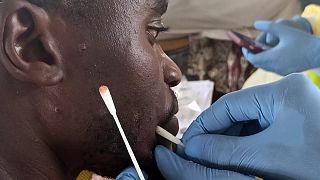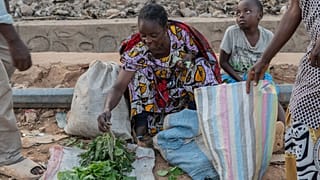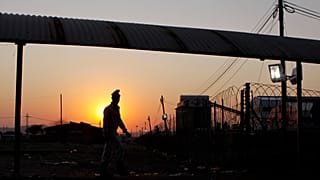Democratic Republic Of Congo
Six weeks after Rwanda-backed rebels captured two major cities in the eastern Democratic Republic of Congo, the region is facing a setback in its fight against the mpox outbreak.
The DRC has the highest burden of the virus with the epicentre in the east.
The Africa Centres for Disease Control and Prevention said that as fighting with the M23 escalates, more than 600 mpox patients fled different hospitals.
It said the country saw a 31 per cent increase in cases last week, bringing the total to close to 16,255.
Many patients can’t be found. Recently arrived vaccines are running short as supplies can’t reach combat zones. And hospitals have been under attack.
“The situation has been very difficult. Insecurity has disrupted everything,” said Dr Serge Munyahu Cikuru, medical officer in charge of the Miti Murhesa health zone in South Kivu province.
Tracing patients to prevent spread of mpox has become more difficult and health workers are running out of options on how to make the best of remaining medical supplies, he said.
The authorities have reportedly started negotiations for a suspension of hostilities to allow for a humanitarian corridor to bring essential medical supplies into the conflict zone.
Last month, the World Health Organization warned that the Clade 1b strain of the virus is continuing to spread globally.
Mpox can be passed on by close contact with anyone with the infection and causes fever, muscle aches, and boil-like skin lesions.
It is usually mild, but can be fatal.
The country, meanwhile, continues to battle other diseases in the east, including cholera and measles.











01:05
Over a million children vaccinated against polio in southern Malawi
01:40
DRC: Acting head of UN mission touches down in Goma
01:37
WHO urges US to share Covid origins findings
01:29
United Nations wants 'security guarantees' to monitor DR Congo ceasefire
00:06
Angola's President João Lourenço makes new push for peace in eastern DRC
02:09
Kagame criticises international "threats" against Rwanda as US sanctions loom